News & Announcements
- Details
- Written by Joshua Wachtel
In this piece, journalist Robert Koehler unearths one of the roots of the restorative justice movement in the work of an indigenous community in Manitoba that reached "deep into their souls and into the roots of a lost way of life, to save their children and the future."
Sincere thanks to Koehler for allowing us to repost this piece in full.
- Details
- Written by Joshua Wachtel
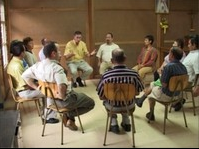 The Sycamore Tree Project, a world-wide program of Prison Fellowship International brings groups of crime victims into prison to meet with groups of unrelated offenders. They talk about the effects of crime, the harms it causes, and how to make things right. In a recent project in Queensland, Australia, victims of crime met for eight weeks in a program aimed to help both victims and offenders explore the impacts of crime, with the goal of fostering healing and change.
The Sycamore Tree Project, a world-wide program of Prison Fellowship International brings groups of crime victims into prison to meet with groups of unrelated offenders. They talk about the effects of crime, the harms it causes, and how to make things right. In a recent project in Queensland, Australia, victims of crime met for eight weeks in a program aimed to help both victims and offenders explore the impacts of crime, with the goal of fostering healing and change.
Reporters Terri Begley and Emma Sykes write:
- Details
- Written by Joshua Wachtel
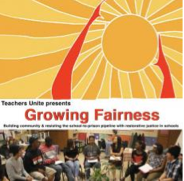 Bryce Stucki, a reporter at The American Prospect, takes a look at Growing Fairness, a new documentary by Teachers Unite that critiques punitive school discipline policies and suggests they be replaced by restorative practices. He writes:
Bryce Stucki, a reporter at The American Prospect, takes a look at Growing Fairness, a new documentary by Teachers Unite that critiques punitive school discipline policies and suggests they be replaced by restorative practices. He writes:
“Education was where my heart was,” says Tyrone Sinclair in Growing Fairness, a documentary showcasing the impact restorative-justice programs can have in our nation's schools. Sinclair says he was expelled from school at 16, became homeless, and then ended up in jail. Now, he organizes young people in Los Angeles. “I knew that wasn’t the place for me,” he says of prison. “I love to learn every day.”
- Details
- Written by Joshua Wachtel
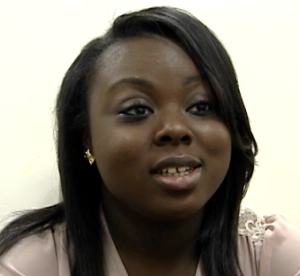 A Fairfax student during a restorative circle simulation from a video about the FCPS Restorative Justice programPoised between the Blue Ridge Mountains of Virginia and Washington D.C., Fairfax County Public Schools (FCPS), is a progressive and diverse school system on the edge of change. FCPS has initiated a system wide implementation of restorative justice processes in our schools which aims to transform how the FCPS community handles harm and wrongdoing. Several schools in this 200+ school system, the 11th largest in the country, have been exploring the use of restorative justice since 2004 to respond to discipline issues through pilot programs at two large high schools and various trainings for staff.
A Fairfax student during a restorative circle simulation from a video about the FCPS Restorative Justice programPoised between the Blue Ridge Mountains of Virginia and Washington D.C., Fairfax County Public Schools (FCPS), is a progressive and diverse school system on the edge of change. FCPS has initiated a system wide implementation of restorative justice processes in our schools which aims to transform how the FCPS community handles harm and wrongdoing. Several schools in this 200+ school system, the 11th largest in the country, have been exploring the use of restorative justice since 2004 to respond to discipline issues through pilot programs at two large high schools and various trainings for staff.
In 2011, Vickie Shoap, a veteran RJ facilitator in Virginia’s criminal justice system, was hired to develop and manage a system-wide RJ implementation that would educate schools about this valuable tool and train school staff to facilitate RJ processes. The goals of this initiative are to build a culture of support for conflict resolution, including restorative practices for classroom management and restorative justice processes for discipline issues that offer school administrators an effective disciplinary option other than suspending students. FCPS hired a second restorative justice specialist in 2013, Dan Wichman-Buescher, a graduate of Eastern Mennonite University. Shoap and Wichman-Buescher are responsible for training school staff in restorative practices, facilitating RJ processes and training restorative justice school teams for long term sustainability of RJ in FCPS.
- Details
- Written by Joshua Wachtel
 Bryan Cohen, writing at Capitol Hill Seattle Blog, reports on a new program to be piloted shortly in Seattle, Washington, to keep low-level offenders out of the criminal justice system.
Bryan Cohen, writing at Capitol Hill Seattle Blog, reports on a new program to be piloted shortly in Seattle, Washington, to keep low-level offenders out of the criminal justice system.
Andrea Brenneke, who was involved in organizing a restorative circle for a high profile case involving the murder of a Native American carver by a Seattle policemen, will serve as director of the City of Seattle's new Restorative Justice Initiative.
Cohen quotes Stephanie Tschida, president of the East Precinct Advisory Council, who said: “It’s a good idea for some of these residents who deal with a log of ongoing drug dealing and loitering. It could be more constructive avenue to people voicing similar concerns over and over again.”
- Details
- Written by Joshua Wachtel
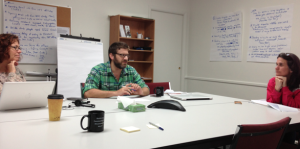 (left to right) IIRP Assistant Director for Communications Laura Mirsky, Director of Communications & Technology Ben Wachtel and Vice-President for Advancement Linda Kligman during a restorative circle team builder (photo by Assistant Director of Technology Steve Orrison)The IIRP teaches others to implement restorative practices, but we also, through a process of continual reflection, strive within our own organizational structure to operate restoratively on a number of levels.
(left to right) IIRP Assistant Director for Communications Laura Mirsky, Director of Communications & Technology Ben Wachtel and Vice-President for Advancement Linda Kligman during a restorative circle team builder (photo by Assistant Director of Technology Steve Orrison)The IIRP teaches others to implement restorative practices, but we also, through a process of continual reflection, strive within our own organizational structure to operate restoratively on a number of levels.
I work in the Advancement, Communications and Technology department. Here we conduct our weekly check-in meetings using a series of circle questions, even as some of us, like me, phone in our participation in the circle by conference call. I also have regular monthly “supervision” meetings (again by phone) with my supervisor, Laura Mirsky, assistant director for communications. These meetings are an opportunity for me to reflect on my work, discuss challenges and get suggestions from Laura. In terms of the “social discipline window,” supervision is very much a “with” process, rather than a top-down “authoritarian” process.
- Details
- Written by Joshua Wachtel
IIRP President Ted Wachtel spoke at a restorative justice conference at Utah Valley University in autumn 2012, and the talk has been posted on youtube. Wachtel speaks informally for the first few minutes about his personal journey that led him to start schools to help at-risk youth improve their behavior. In his prepared talk, which starts at minute seven, he interweaves powerful stories of restorative conferences and research results to illustrate a variety of basic restorative practices concepts. Parts of this talk essentially are a "reading" from Wachtel's new book, Dreaming of a New Reality.
See the video at youtube.
- Details
- Written by Joshua Wachtel
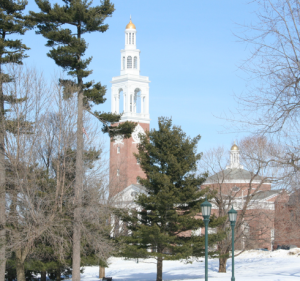 When it comes to responding to inappropriate behavior on the college campus, a small but growing number of professionals responsible for addressing student conduct at colleges and universities are recognizing the potential of restorative practices to help young adults take responsibility for their behavior and set a new course.
When it comes to responding to inappropriate behavior on the college campus, a small but growing number of professionals responsible for addressing student conduct at colleges and universities are recognizing the potential of restorative practices to help young adults take responsibility for their behavior and set a new course.
Rafael Rodriguez, Assistant Director of Redstone Campus & Community and Leadership Development at the University of Vermont (UVM), discussed a conduct case he heard a couple years ago involving two first year men who were documented three times for using drugs and alcohol by resident advisors (RAs) in the first week of the academic year.
- Details
- Written by Joshua Wachtel
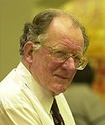 Martin Wright is a former director of the Howard League for Penal Reform, policy officer of Victim Support and a founder member of the UK's Restorative Justice Council. Restorative Justice Online describes him as "an early advocate for restorative justice in the UK and Europe." In this guest blog, originally posted in the Church Times, he argues that Restorative justice has been tried and tested but needs to be applied. He offers a critique of UK government policy and a suggestion that faith groups could play an important role in RJ implementation across the country.
Martin Wright is a former director of the Howard League for Penal Reform, policy officer of Victim Support and a founder member of the UK's Restorative Justice Council. Restorative Justice Online describes him as "an early advocate for restorative justice in the UK and Europe." In this guest blog, originally posted in the Church Times, he argues that Restorative justice has been tried and tested but needs to be applied. He offers a critique of UK government policy and a suggestion that faith groups could play an important role in RJ implementation across the country.
- Details
- Written by Joshua Wachtel
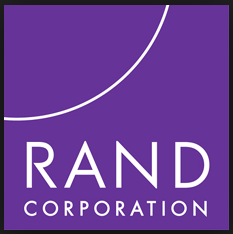 RAND Corporation, in conjunction with the National Institutes of Health, is embarking on a randomized controlled study to measure the effectiveness of restorative practices in influencing school environments and decreasing problem behaviors.
RAND Corporation, in conjunction with the National Institutes of Health, is embarking on a randomized controlled study to measure the effectiveness of restorative practices in influencing school environments and decreasing problem behaviors.
The five-year project begins its first year with a planning phase. RAND will coordinate with the International Institute for Restorative Practices and its licensee, the Restorative Justice Project of the Midcoast, based in Belfast, Maine, to deliver restorative practices training to the study group of seven middle schools. These schools will implement restorative practices whole-school change beginning in school year 2014-15.

Restorative Works Year in Review 2024 (PDF)
All our donors are acknowledged annually in Restorative Works.
